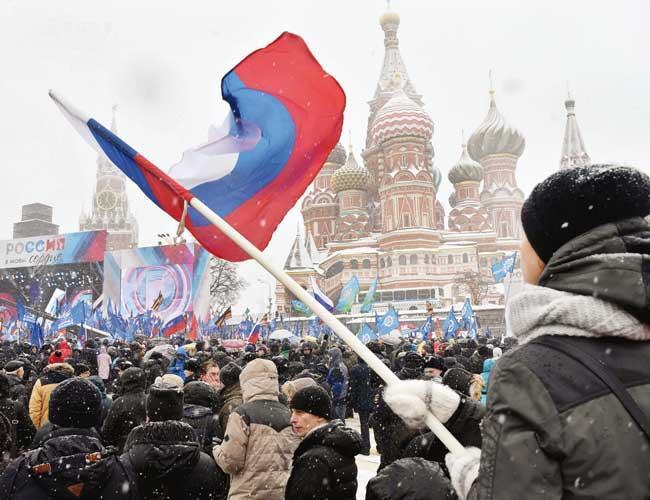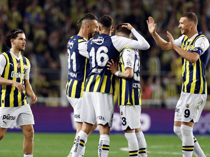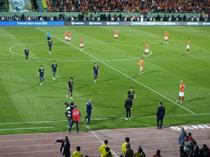No Olympics for Russians who had life bans lifted
PYEONGCHANG

Fifteen Russians whose life bans for doping were lifted last week have been barred from the Pyeongchang Winter Games, the International Olympic Committee said on Monday, as Russia’s drugs conspiracy continued to reverberate just days from the opening ceremony.
The decision was taken after a special panel “unanimously recommended that the IOC not extend an invitation to the Olympic Winter Games Pyeongchang 2018 to the 15 individuals”, a statement said.
“The OAR IG (Olympic Athlete from Russia Implementation Group) confirmed that no additional invitations will be extended to these 15 individuals,” the IOC said.
The 15 were among a group of 28 Russians who had been banned for life from the Olympics for doping, but whose suspensions were overturned at the Court of Arbitration for Sport on Feb. 1.
They included 13 athletes and two ex-athletes now working as support staff. The other members of the 28 have either retired or are unavailable for undisclosed reasons.
The IOC has barred Russia from the Pyeongchang Olympics, which open on Friday, over a widespread doping conspiracy. But 169 Russians who have passed strict anti-doping protocols will compete under a neutral flag.
The announcement comes after the body’s president, Thomas Bach, slammed the CAS decision and called for reforms to the independent sports tribunal.
Bach kept up his attack on Feb. 5, when he told reporters: “This CAS decision is extremely disappointing and needs a very careful review. We will clearly review it. If we can appeal it we will appeal it.”
The World Anti-Doping Agency has also expressed “serious concern” over the decision by CAS, which said it had insufficient evidence to leave the bans in place.
And Canadian luge athlete Sam Edney, who was robbed of a 2014 Olympic medal when the bans were overturned, called the uncertainty “a nightmare for clean athletes.”
Australia’s John Coates, president of the court’s governing body, said the tribunal would “thoroughly examine” the concerns raised by Bach and would issue details of the decisions as soon as possible.
“Athletes are entitled to have confidence in judicial processes at all levels, more particularly before the CAS,” Coates said in a statement.
















